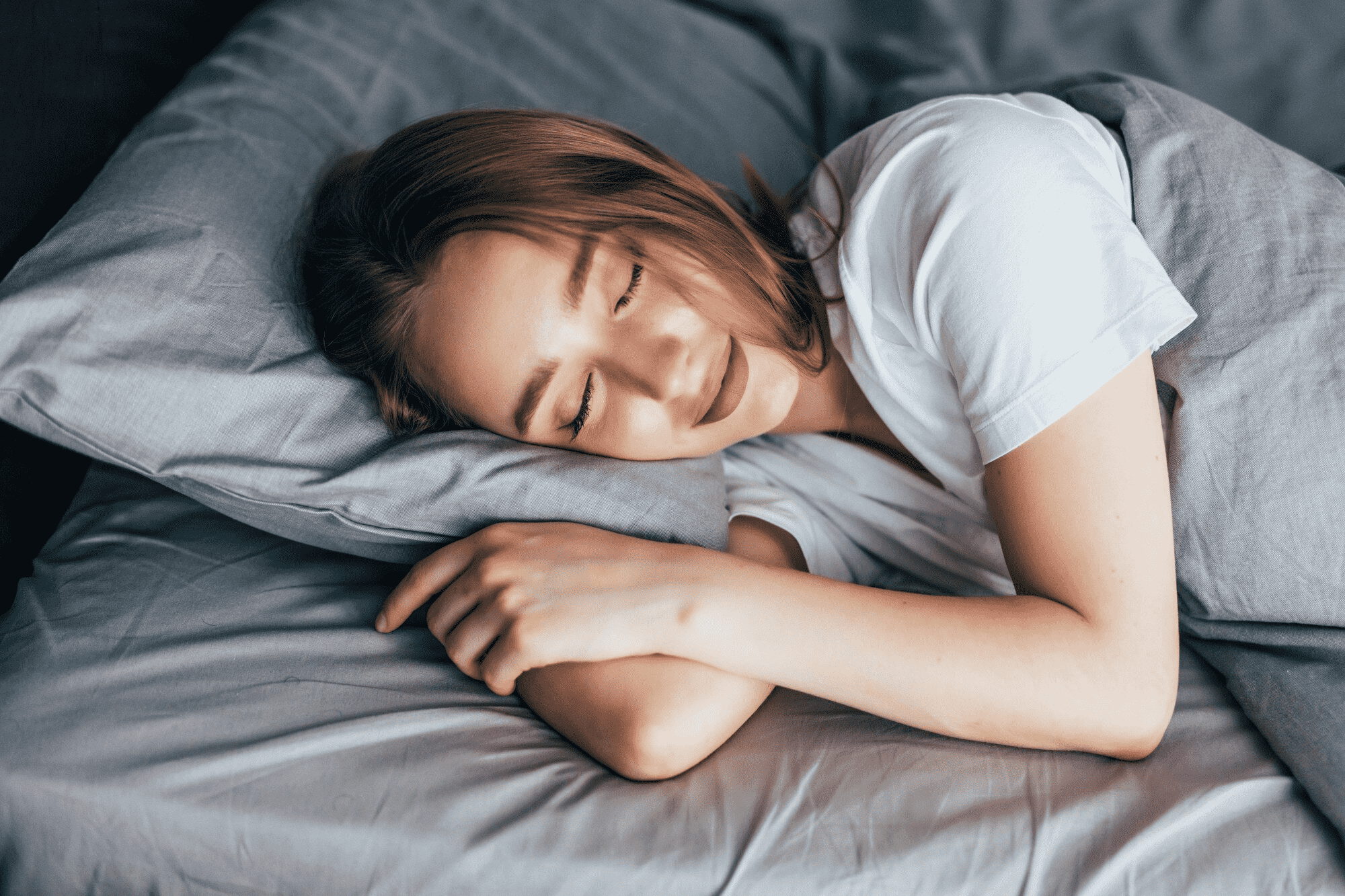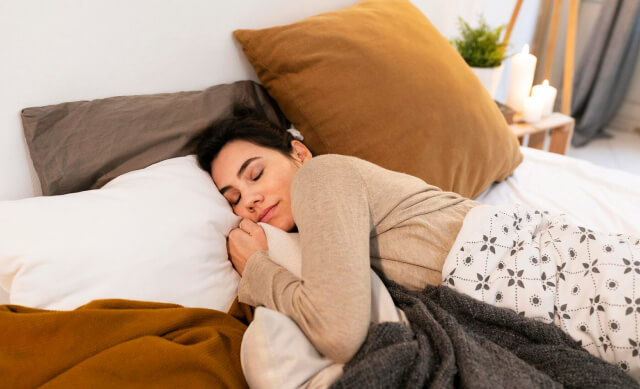
Healthy Sleep
Sleep is not just for resting; it is very important for your health and well-being. Knowing why good sleep matters and its benefits is key to staying healthy.
Why Sleep Matters
Promotes Growth
- Essential for physical and mental development.
- Helps release the growth hormone.
Eliminates Toxins
- Supports the brain's detoxification process.
- Aids in removing waste products from the body.
Healing and Repair
- Repairs and give energy to the heart and blood vessels.
- Important to restore various bodily functions.
Boosts Immune System
- Strengthens the immune system to keep you well.
- Makes it easier for your body to fight infections.
Recommended Sleep Duration
- Adults should aim for 7-9 hours of sleep per night.
- Each persons' needs are different, so make sure you know what suits you.
Specific Benefits of Quality Sleep
- Strengthens the immune system to fend off illnesses.
- Reduces susceptibility to illnesses.
- Promotes Mental Well-being
- Enhances cognitive functions and emotional resilience.
- Means you are more likely to live longer.
Knowing why good sleep is important and recognising when you are not getting enough sleep is the first step to better health. Add healthy sleep habits to your routine to enjoy the many benefits of good sleep.
Building a Healthy Sleep Routine
A consistent sleep routine is the cornerstone of a good night’s sleep. Establishing healthy habits contributes to overall well-being and ensures you wake up feeling refreshed and energised.
Maintain a Consistent Sleep Schedule
- Sleep and Wake Time: Go to bed and wake up at the same time daily.
- Consistent Duration: Aim for a consistent amount of sleep each night.
Napping Guidelines
- Avoid Prolonged Naps: If needed, limit naps to 20-30 minutes.
Keep a Sleep Diary
- Document your sleep patterns to identify trends and areas for improvement.
Exposure to Natural Light:
- Get outside in the morning to boost your natural light exposure.
Healthy Lifestyle for Better Sleep
Diet
- Maintain a well-balanced diet for overall health.
Limit Alcohol and Smoking
- Reduce alcohol intake and avoid smoking.
Regular Exercise
- Engage in regular exercise, but avoid intense workouts close to bedtime.

Winding Down Before Bed
Relaxing Activities
- Engage in relaxing activities like yoga, meditation, or reading an hour before bed.
Warm Bath
- Take a warm bath to achieve an ideal sleep-inducing temperature.
Avoid Going to Bed Hungry or Full
- Don't go to bed thirsty, hungry, or overly full.
Watch Your Beverage Intake
- Avoid caffeinated and sugary drinks 5-6 hours before bedtime.
- Herbal tea before bed is a good choice.
Limit Screen Time
- Minimise screen time at least an hour before bed to promote relaxation.

Creating a Sleep Sanctuary
Optimal Sleep Environment
- Ensure your bedroom is cool, dark, and quiet.
- Consider using earplugs, eye masks, and blackout blinds if needed.
Comfortable Bedding
- Invest in a comfortable mattress and pillows.

Dealing with Sleep Struggles
Addressing Insomnia
- Don't stay in bed if unable to sleep for more than 15 minutes.
- Engage in relaxing activities like reading or gentle yoga.
Managing Worries
- Write down worries on paper before bedtime to clear your mind.


Building a sleep routine takes time, but the benefits are worth the effort. Prioritise your sleep hygiene to ensure a restful night and improved overall well-being. If sleep difficulties persist, consider consulting with a healthcare professional for personalised advice.
When to see a doctor
While occasional sleep disturbances are normal, persistent poor sleep may indicate an underlying medical condition. Knowing when to seek help from a doctor is crucial for addressing potential issues. If you experience any of the following signs or symptoms, it’s advisable to consult your GP:
Signs of Potential Sleep Disorders
Lack of Energy Despite Sufficient Sleep
- Persistent fatigue even after getting an adequate amount of sleep.
Common Medical Conditions Linked to Poor Sleep:
Iron Deficiency Anaemia, B12, or Folate Deficiency
- Nutrient deficiencies that can impact sleep.
Physically Enacting Dreams
- Acting out dreams physically during sleep.
Excessive Sleepiness During Activities
- Falling asleep during conversations or meals.
Collapsing During Strong Emotions
- Experiencing physical collapse during laughter or intense emotions.
Disruptive Snoring
- Family members regularly disturbed by loud snoring.
Sleepwalking
- Signs of sleepwalking or other unusual behaviours during sleep.
Hypothyroidism
- An underactive thyroid affecting overall metabolism.
Sleep Apnoea
- Breathing disruptions during sleep.
Coeliac Disease
- An autoimmune condition affecting the digestive system.
Chronic Fatigue Syndrome
- Persistent, unexplained fatigue.
Diabetes
- Can disrupt sleep patterns.
Restless Leg Syndrome
- Uncomfortable sensations in the legs, often relieved by movement.
Weight-Related Issues
- Both overweight and underweight conditions can impact sleep.
Cancer Treatments
- Various cancer treatments may affect sleep.

If you suspect an underlying medical condition, your doctor may conduct blood tests or provide a questionnaire to assess your sleep patterns. Seeking medical advice is essential to identify and address potential issues early on.
Remember, quality sleep is a vital component of overall health, and addressing sleep difficulties promptly can lead to improved wellbeing.
Sleep tips for new parents
Sleep When Your Baby Sleeps
- Babies sleep frequently during the day; take advantage of their naps to rest. A power nap, even for 20 minutes, can be rejuvenating.
Share Night-time Responsibilities
- If possible, take turns with your partner for night-time duties. This can include diaper changes and comforting the baby, allowing both parents to get some uninterrupted sleep
Ask for Support
- Don't hesitate to seek help from family and friends. Accept offers of assistance, whether it's watching the baby while you rest or helping with household chores.
Sleep Hygiene for Parents
- Practice good sleep hygiene, including avoiding screens an hour before bed, creating a relaxing sleep environment, avoiding caffeine before bedtime, establishing a wind-down routine, and sticking to a sleep schedule.
Create a Sleep-Conducive Environment for Your Baby
- Swaddling, white noise machines, and a dark bedroom can contribute to longer stretches of baby sleep.
Help Your Baby Develop Good Sleep Habits
- Allow your baby to learn to fall asleep independently. Resist picking them up immediately if they fuss, giving them a chance to self-soothe.

Look After Your Health
- Maintain a balanced diet and engage in regular exercise. Avoid exercising right before bedtime. Relaxation techniques can help manage stress.
Remember Sleep Patterns Change
- Understand that the period of frequent night-time waking won't last forever. By 3 months, babies start sleeping for longer stretches, and by 6 months, they can sleep up to 9-12 hours at night.
Seek Professional Help if Needed
- If you suspect a sleep problem or experience persistent tiredness, talk to your GP or health visitor. Signs of postnatal depression, such as difficulty sleeping even when the baby is asleep or constant fatigue, should be addressed promptly.
Remember
Taking care of yourself is crucial for effective parenting. Prioritise your well-being, and don’t hesitate to seek assistance when needed. For further information and support,
Sleep, women and hormones
Hormones play a crucial role in various aspects of women's health, including sleep patterns. Understanding the hormonal changes during different life stages can help address sleep challenges that women may experience.
Menstruation
- Progesterone Fluctuations: Just before menstruation, a dip in progesterone can lead to typical PMS symptoms, including difficulty falling asleep.
- Polycystic Ovary Syndrome (PCOS): Women with irregular periods due to PCOS may experience hormone-related sleep difficulties. Regular exercise and lifestyle adjustments can help manage symptoms.
Tip: Exercise before your period, avoid caffeine and nicotine, and consult your GP for potential solutions, such as birth control pills.
Pregnancy
- Hormonal Changes: Throughout pregnancy, varying levels of oestrogen and progesterone can impact sleep. High oestrogen levels in the first trimester may cause increased drowsiness.
Tip: Elevate your head while sleeping to alleviate pregnancy-related reflux and snoring.
Menopause
- Fluctuating Hormones: Hormonal fluctuations during menopause can lead to symptoms like hot flashes and night sweats, impacting sleep. Lower progesterone levels may contribute to irritability.
- Sleep Apnea: Older women may be more prone to developing sleep apnoea post-menopause due to reduced hormone levels.
Tip: Consult your GP about hormone replacement therapy (HRT) for menopausal symptoms. Manage hot flashes with lifestyle changes and consider mindfulness and breathing exercises.

As with all sleep concerns, establishing a good sleep routine and maintaining proper sleep hygiene are crucial. If you’re facing persistent sleep issues, consider incorporating the recommended tips for better sleep. It’s important to consult your healthcare provider for personalised advice tailored to your specific situation.
Accessing support
Recognise the impact of external factors, such as stress, on sleep is crucial for overall wellbeing. If you find that stressors in your life are affecting your sleep, consider the following steps:
Seeking Mental Health Guidance
- Healthy Sandwell: Offers mental health guidance and support. Don't hesitate to reach out if you're facing challenges related to stress or other issues.
Mindfulness and Cognitive Behavioural Therapy (CBT)
- Interventions for Behaviour Change: Mindfulness and CBT can be effective in changing behaviours related to sleep.
- Stress Management: CBT is particularly useful for managing stress and worries that impact sleep.
Sleep Station and NHS Services
- CBT for Insomnia: Sleep Station is a service offering CBT for insomnia. A GP referral is needed to access this service on the NHS.
- More Tips: Additional tips for better sleep can be found on the NHS website and through The Sleep Charity.
Consulting Your GP
- If sleep problems persist despite trying various tips, consider consulting your GP.
- Medical Evaluation: Your GP may conduct blood tests to rule out underlying medical problems contributing to poor sleep.
- Referral to Sleep Clinics: If necessary, your GP can refer you to sleep clinics for further evaluation.
Black Country Mental Health Helpline
- Available Support: If you experience feelings of loneliness or anxiety during the night, the Black Country mental health helpline is available 24/7 at 0800 008 6516.